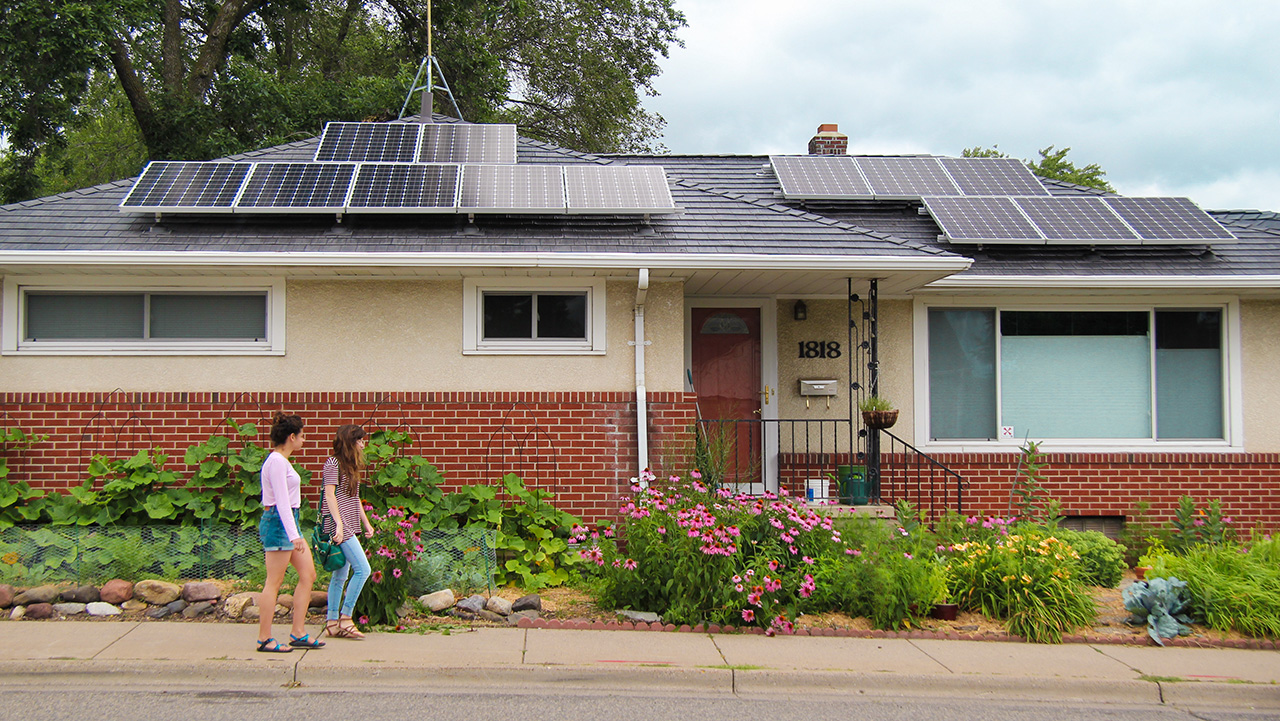
Installing solar on homes and businesses is more popular than ever. Minnesotans are seeking out affordable, zero-carbon sources of electricity, and climate science shows that rooftop solar and other smaller installations are an important ingredient in decarbonizing our electricity system. However, there have been some serious speed bumps along the way for many Minnesota property owners when it comes to connecting their solar to the grid—particularly for customers of Xcel Energy. Connecting solar, or any type of distributed electricity generation, to the grid requires utility involvement and permission through a process called “interconnection.” These interconnection issues have been covered by the media, but, as of March 2022, Minnesotans are one step closer to a more painless and less costly process.
In late March, the Minnesota Public Utilities Commission issued a decision in docket 16-521 addressing several interconnection challenges Xcel Energy customers have experienced over the past two years. Fresh Energy has been an active participant in this docket at the Commission since 2016 and filed expert comments on this issue in August and October of 2021.

“This Commission decision really helps move interconnection in the right direction for Xcel customers. We now have an initial set of solutions that will help alleviate long wait times and reduce cost barriers in a balanced, common-sense way,” said Fresh Energy’s Isabel Ricker, senior manager, clean electricity. “Installing solar is a big decision for customers, and their utility should be a partner in the process.”
Some of the highlights of the recent decision include:
A new cost-sharing proposal was approved.
The Commission approved the cost-sharing proposal put forward by Fresh Energy and partners at All Energy Solar and TruNorth Solar, which will help residential and small business customers pay for infrastructure upgrades that may be needed to connect their solar project to the grid. While most projects of this size do not require extensive upgrades, occasionally customers face costs of $5,000 or even $15,000—on top of the cost to install the project. This can present unforeseen challenges and frustration. The new cost-sharing model will help resolve this problem by allowing customers to pool funds, which will be used to cover grid upgrades up to $15,000 per premise. The new cost-sharing process will go into effect by August 31, 2022. Fresh Energy is actively working with Xcel on an implementation plan to ensure a successful roll-out.
No more “indefinite holds.”
The Commission has ordered Xcel Energy to phase out the practice of putting solar projects “on hold” except in extreme circumstances. The “on hold” practice, and the indefinite nature of many holds, created untenable uncertainty for customers wanting to install solar and hampered solar development. The phase-out of “on hold” is important for restoring trust in the state’s official interconnection process and timeline requirements.
New group study process for community solar.
The Commission will allow Xcel to begin piloting a group study process that will help alleviate backlogs of community solar projects and enable larger grid upgrades to get done. The Commission also directed Xcel to convene a working group this summer to refine the group study process and inform how to move from pilot to permanent offering. Fresh Energy is looking forward to engaging with Xcel and solar developers in this workgroup to create a robust and fair group study process that achieves process efficiencies and advances the state’s grid modernization goals.
Proposed planning limit
Xcel also proposed a DER (distributed energy resources) planning limit which would create a capacity “buffer” on its grid. Fresh Energy opposed this limit because the benefits for reliability and system operations were not clear, and it may reduce overall potential DER capacity. The Commission allowed Xcel to proceed with implementation, however, and we are watching to see what impacts the planning limit has in practice.
What’s next for interconnection?
Interconnection is a complex technical process, but as we work to decarbonize our electric grid it is crucial that we find a process that works for utilities and customers. Fresh Energy is looking forward to continuing to work with the Minnesota Public Utilities Commission, solar developers, consumer advocates, and the utility, to resolve the pressing interconnection challenges felt by Xcel customers and solar developers across the state. We are especially grateful to the leadership of Commissioner Schuerger for his attention and prioritization of this critical issue. In the coming months, we are looking forward to tracking Xcel’s progress in implementing these solutions and continuing conversations on distribution planning, grid reliability, and cost allocation.
Be sure to follow Fresh Energy for updates about our interconnection and our other clean energy work through equitable policies, innovative programs, and invaluable partnerships.
